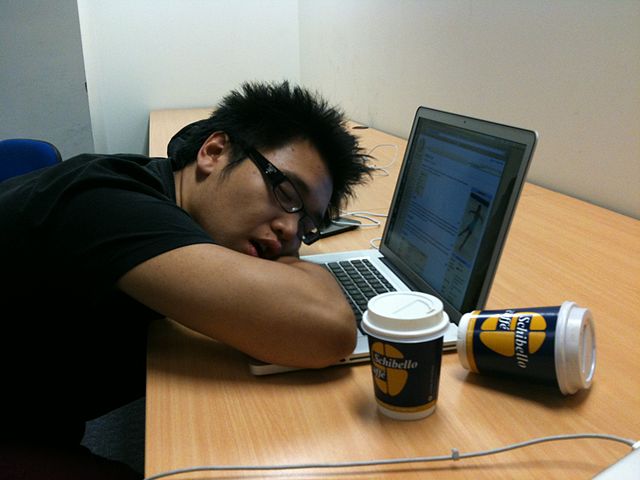Just 10 minutes of mindfulness practice each day boosts your brain as much as 45 minutes of extra sleep
06/11/2019 / By Zoey Sky

You need a good night’s sleep to stay healthy. But if you’re constantly stressed because of work, an interesting study suggests that 10 minutes of mindfulness exercises like meditation can help your brain recharge.
The study, which was conducted by esteemed researchers from Oregon State University (OSU), Syracuse University, the University of Tennessee (UTK), was published in the Journal of Business Venturing.
What is mindfulness?
Mindfulness can be different for each practitioner, but the process often involves traditional meditation or exercises designed to clear your head from distractions. Mindfulness can be as simple as practicing deep breathing techniques, going on long walks, or taking yoga classes.
The benefits of mindfulness exercises
The findings from this study found that if you don’t have time for a nap, a 10-minute session of mindfulness exercises can help you feel energized. The practice can also offer the same “positive brain effects as an extra 44 minutes of sleep per night.”
Entrepreneurs are individuals who often take risks in the hopes of reaping big rewards from their business ventures. This lifestyle can be exhilarating, but it’s also stressful. Business-oriented people need to get enough rest, so they can function at their best. (Related: Don’t sweat the exam: Another study confirms mindfulness reduces stress.)
Exhaustion is a common problem among entrepreneurs involved in new ventures, but there are only a handful of studies that focus on the levels of exhaustion experienced by this group or how they handle it.
To address this concern, Charles Murnieks, the study’s lead author, and his fellow researchers set out to discover effective methods that can help entrepreneurs deal with the exhaustion linked to their line of work.
For the study, the researchers observed 105 entrepreneurs from around the U.S. The volunteers were asked to report on their sleep quality, stress levels, and mindfulness practices, if any.
The results showed that over 40 percent of the volunteers worked 50 hours per week or more (on average) and that they slept less than six hours every night. The researchers noted that participants who had enough sleep or those who practiced mindfulness more often lower levels of exhaustion.
The researchers then conducted a second study of 329 entrepreneurs. The participants were once again asked about their sleep quality, stress levels, and mindfulness practices. The results of the second study corroborated the findings of the initial study: that mindfulness can help relieve exhaustion.
But in both studies, the researchers noted that mindfulness exercises aren’t as effective if you’re experiencing perceived exhaustion or not getting enough sleep.
The researchers explained that mindfulness exercises and sleep work differently to address exhaustion. While mindfulness modifies and reduce stressors before they cause exhaustion, sleep helps replenish energy and self-control after your energy is depleted, but before you feel tired.
Further study can help researchers fully understand how mindfulness exercises can help exhausted entrepreneurs and the limits of these benefits. In the meantime, Murnieks, who is also an assistant professor of strategy and entrepreneurship in OSU’s College of Business, posited that mindfulness can help you focus if you don’t have enough time to get some sleep.
This doesn’t mean that you should stay up late to work every day because you can meditate to help your brain stay energized. Mindfulness can’t fully replace quality sleep, which your body needs to maintain your overall physical and mental health. Sleep deprivation is often linked to health conditions like hormonal imbalance, weight gain, and poor brain health.
If work is a major stressor, start a mindfulness routine, get enough sleep every night, and improve your daily habits to manage your stress levels.
Sources include:
Tagged Under: brain function, brain health, fatigue, Meditation, mental health, Mind, mind body science, mindfulness, mindfulness exercise, natural cures, natural medicine, Naturopathy, relaxation, sleep, stress, stress relief
RECENT NEWS & ARTICLES
COPYRIGHT © 2017 DEPRESSIONSYMPTOMS.NEWS
All content posted on this site is protected under Free Speech. DepressionSymptoms.news is not responsible for content written by contributing authors. The information on this site is provided for educational and entertainment purposes only. It is not intended as a substitute for professional advice of any kind. DepressionSymptoms.news assumes no responsibility for the use or misuse of this material. All trademarks, registered trademarks and service marks mentioned on this site are the property of their respective owners.



















